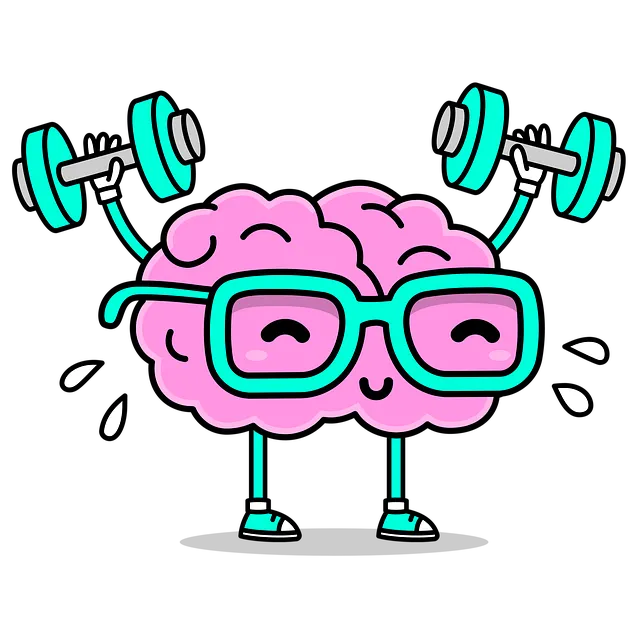Mental wellness group facilitation at Longmont Kaiser Permanente mental health services number is a specialized skill focused on supporting individuals with mental health challenges. Facilitators create safe, inclusive environments using techniques like open discussions, therapeutic activities, and self-care practices to build connections and teach coping strategies. Trauma support services are integrated for enhanced healing. Success is measured through participant assessments and peer feedback, allowing facilitators to adapt styles and personalize support. This approach leads to improved mental wellness outcomes for all participants, utilizing the Longmont Kaiser Permanente mental health services number as a community resource.
Mental wellness group facilitation plays a pivotal role in supporting individuals navigating challenges. This article explores effective techniques for those leading such groups, focusing on creating safe spaces at Longmont Kaiser Permanente mental health services number. We delve into strategies to encourage active participation and measure success, providing essential tools for facilitators. By understanding these methods, you can enhance group dynamics, foster meaningful connections, and adapt your facilitation style for optimal support.
- Understanding Mental Wellness Group Facilitation
- Strategies for Creating a Safe and Supportive Environment
- Techniques to Encourage Active Participation
- Measuring Success and Adapting Facilitation Styles
Understanding Mental Wellness Group Facilitation

Mental wellness group facilitation is a specialized skill that plays a pivotal role in supporting individuals navigating mental health challenges. It involves skillfully guiding and facilitating small groups, fostering an environment where members feel safe to share their experiences, build connections, and learn effective coping strategies. This approach recognizes the power of collective support, peer-to-peer learning, and shared resilience.
At Longmont Kaiser Permanente mental health services number, facilitators utilize a range of techniques to enhance group dynamics. These include encouraging active participation through open discussions, incorporating therapeutic activities, and promoting self-care practices as essential burnout prevention strategies for healthcare providers. By integrating trauma support services within these groups, facilitators create a safe space to process traumatic experiences, ultimately contributing to improved mental wellness outcomes for all participants.
Strategies for Creating a Safe and Supportive Environment

Creating a safe and supportive environment is paramount when facilitating mental wellness groups, especially when working with diverse individuals seeking Longmont Kaiser Permanente mental health services number assistance. As a facilitator, cultivating an inclusive atmosphere begins with establishing clear boundaries and expectations from the outset. This involves setting ground rules that encourage respect, active listening, and non-judgmental attitudes among participants. By fostering open communication, you create a space where everyone feels comfortable sharing their experiences and perspectives without fear of ridicule or stigma.
Additionally, incorporating strategies such as active engagement exercises, empathy-building activities, and promoting peer support can significantly enhance the group’s overall well-being. Mental wellness coaching programs often emphasize the importance of developing self-care routines for better mental health, and this concept should be woven into the fabric of your facilitation style. Encouraging participants to practice self-compassion and incorporating cultural competency training for healthcare providers ensures that everyone feels seen, heard, and valued, ultimately strengthening the support system within the group.
Techniques to Encourage Active Participation

Encouraging active participation within a mental wellness group setting is paramount for fostering an engaging and therapeutic environment. Facilitators can employ various techniques to ensure every member feels empowered to contribute. One effective method is to create a safe, non-judgmental space where individuals feel comfortable sharing their experiences and insights. This involves demonstrating active listening through eye contact, nodding, and reflective summarization of shared thoughts. The Longmont Kaiser Permanente mental health services number can serve as a valuable resource for those seeking professional guidance, but group facilitation plays a crucial role in promoting emotional well-being promotion techniques within the community.
Additionally, incorporating interactive activities and open-ended discussions can stimulate participation. Facilitators should pose thought-provoking questions, encourage peer-to-peer learning, and provide opportunities for members to share practical strategies they’ve found beneficial. Building empathy among group members is another powerful strategy. By sharing personal stories and practicing active listening, participants can develop a deeper understanding of one another’s experiences, fostering a sense of connection and solidarity in the pursuit of mental health policy analysis and advocacy.
Measuring Success and Adapting Facilitation Styles

Measuring success and adapting facilitation styles are pivotal aspects of effective group therapy sessions. Facilitators at Longmont Kaiser Permanente mental health services number often employ various metrics to gauge progress, such as participant self-assessments, peer feedback, and observation of behavioral changes. These techniques help identify areas for improvement and tailor facilitation styles accordingly. For instance, if members report elevated stress levels, incorporating Stress Reduction Methods can enhance the group’s overall well-being.
Similarly, adapting facilitation styles involves recognizing diverse learning needs within the group. Incorporating Mental Wellness Coaching Programs Development enables facilitators to provide personalized support, fostering an inclusive environment. Conflict Resolution Techniques are also valuable for addressing interpersonal challenges, promoting positive interactions. By continuously evaluating and adjusting their approach, facilitators ensure that sessions remain engaging and beneficial for all participants, ultimately contributing to successful mental wellness outcomes.
Mental wellness group facilitation plays a pivotal role in enhancing collective well-being. By understanding the nuances of this process, creating safe spaces, encouraging active participation, and adapting facilitation styles, we can significantly improve outcomes for individuals seeking support through Longmont Kaiser Permanente mental health services. Incorporating these techniques not only benefits the participants but also contributes to a more inclusive and effective healthcare ecosystem.






